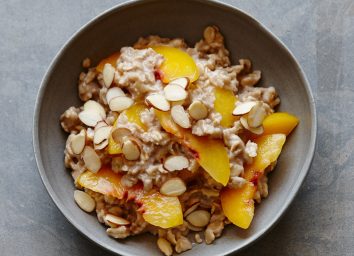The 20 Worst Soup Ingredients for Weight Loss
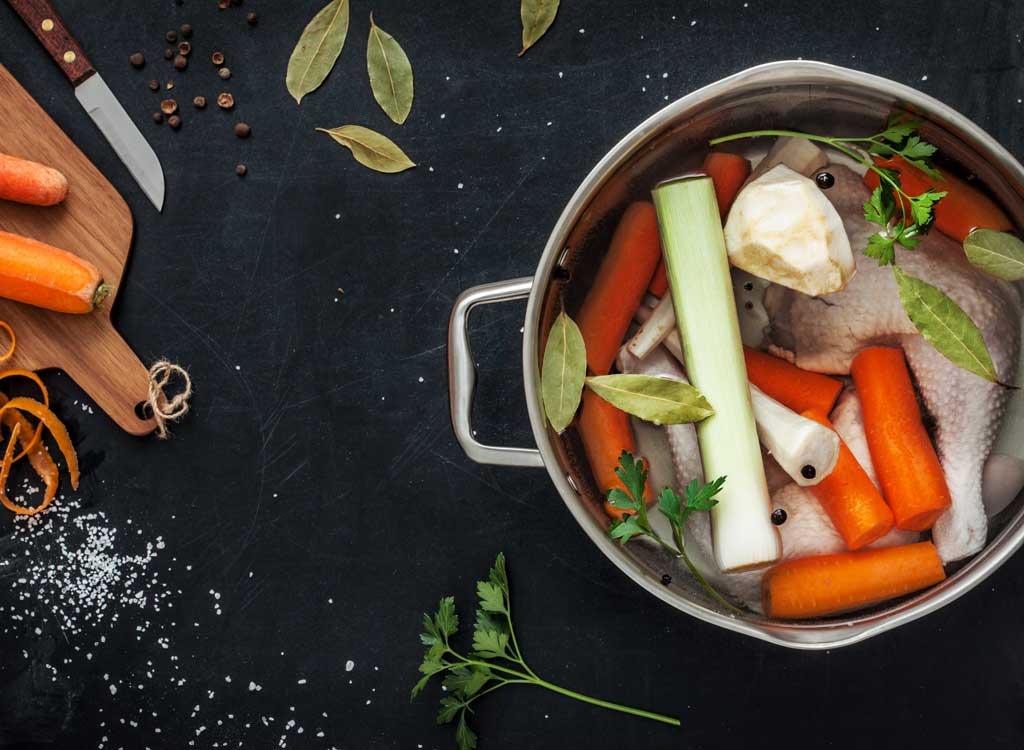
Warm. Soothing. Tasty. When you think of a bowl of homemade soup, those are a few of the words that likely come into your mind. Us? We’re more cynical. When we think of the classic wintertime dish, scary terms like MSG, saturated fat and sodium flash through our heads.
Even though many people assume that whipping up a bowl of broth at home is a better bet for your health and weight loss goals than scarfing down the canned variety, that’s not always the case. In fact, thanks so a handful of all-too-common icky ingredients, a homemade soup can be the opposite of slimming—and straight up bad for your health.
To whip up a tasty, flat-belly soup for real, examine our list of the worst ingredients to put into your soup—and then be sure to avoid any recipe that calls for them. For a healthier choice that still feels indulgent, find out 20 Best Soups for Your Slow Cooker!
Liquids
Heavy Cream
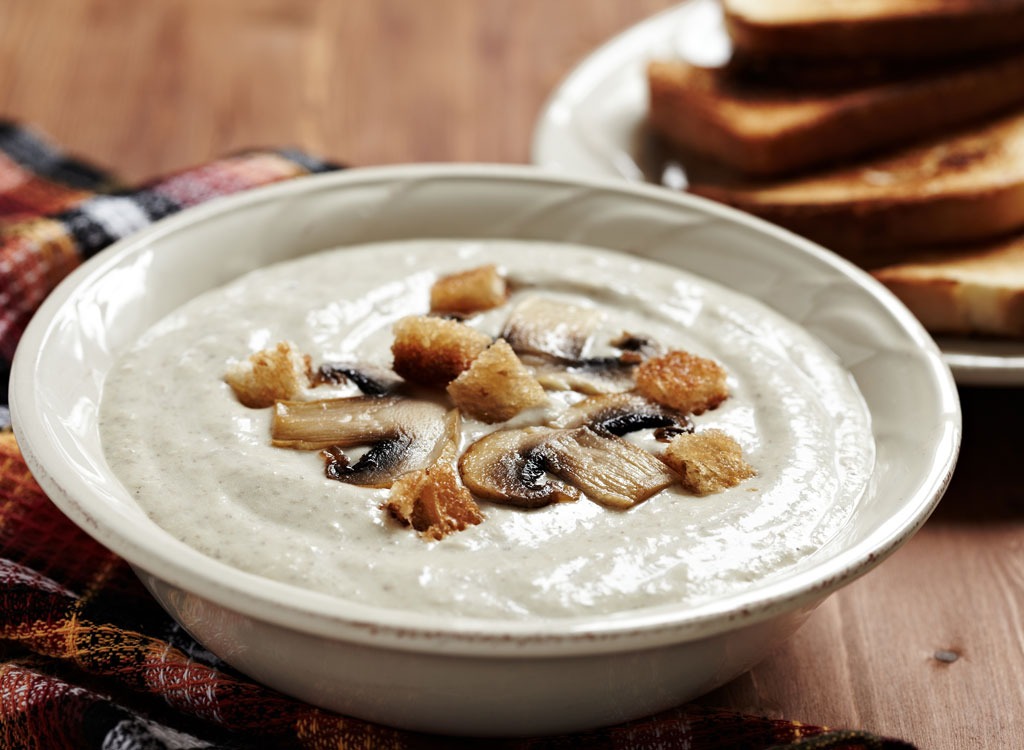
Avoid soups that are cream-based, and instead, choose recipes that call for pureed, vegetable, or chicken broth as a base, which will help to cut back calories and fat, says registered dietitian Isabel Smith, MS, RD, CDN.
Full-Sodium Broth

One cup of Swanson’s Chicken Broth has just 10 calories. The only downside? It has a whopping 860 milligrams of blood pressure-raising salt. For some context, that’s the sodium equivalent of not one, not two, but nearly three orders of large french fries from McDonald’s! Low-sodium and unsalted broths are the way to go if you want to ward off water retention and stop belly bloat.
Bouillon Cubes
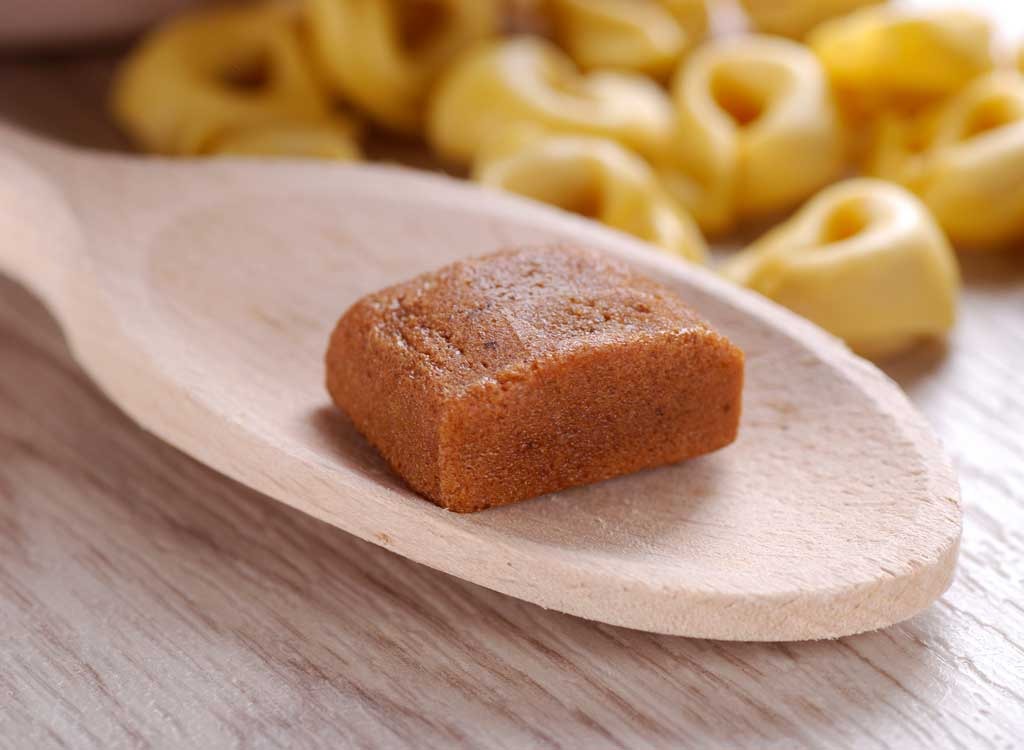
Monosodium glutamate, better known as MSG, Yellow 5, and Yellow 6 are just three of the unsettling ingredients found in a typical bouillon cube. The former has been shown to stimulate appetite while the latter two, both artificial coloring agents, may have adverse effects on activity and attention in children. To discover more gross things you may be eating on the reg, check out these 40 Most Horrifying Things Found in Food.
Beef Broth
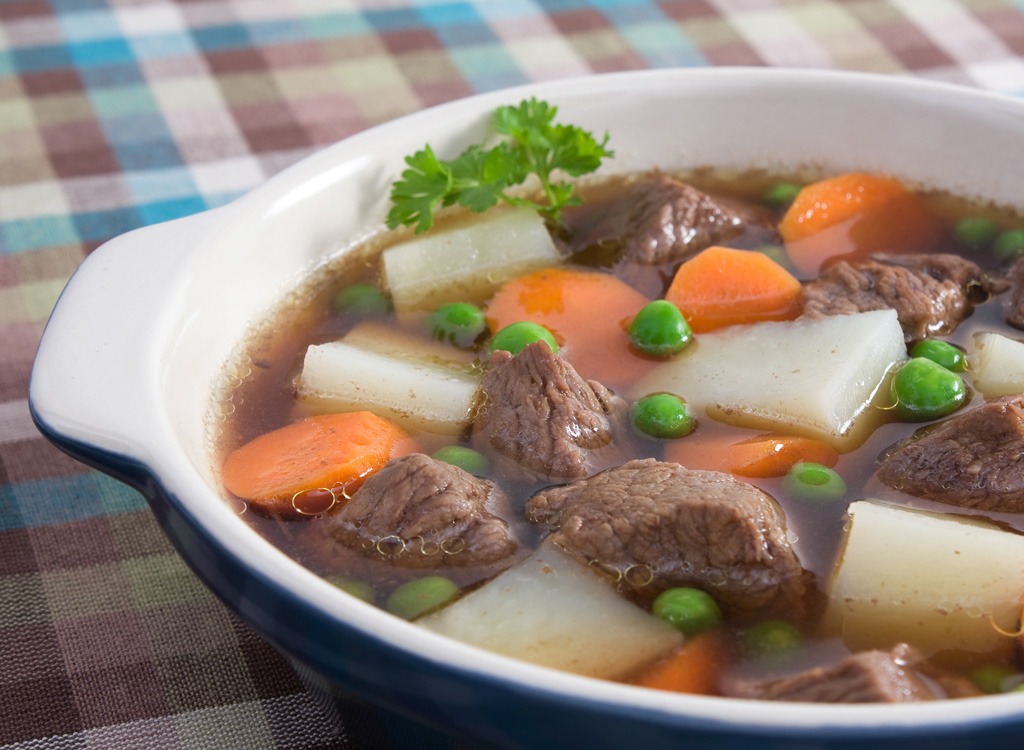
What do cola and beef broth have in common? They’re both laced with caramel coloring, a potentially carcinogenic compound that gives French onion soup its signature hue. Pick up an organic variety of broth to keep the additive out of your soup bowl and out of your mouth.
REALTED: 5 Best Store-Bought Broth & Stock Brands For Weight Loss
Juice
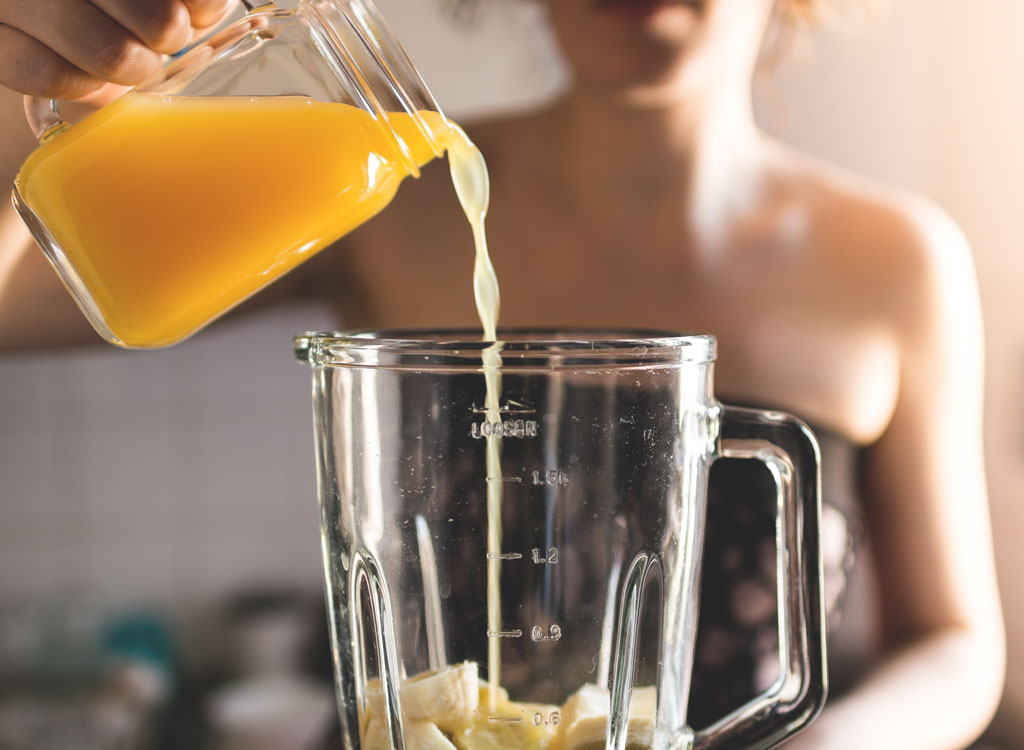
Strange but true: A fair share of soup recipes call on sugary juices to amp up their flavor profiles. Steer clear of the excess sugar and calories by avoiding those dishes at all costs.
Meats & Proteins
Fatty Ground Beef
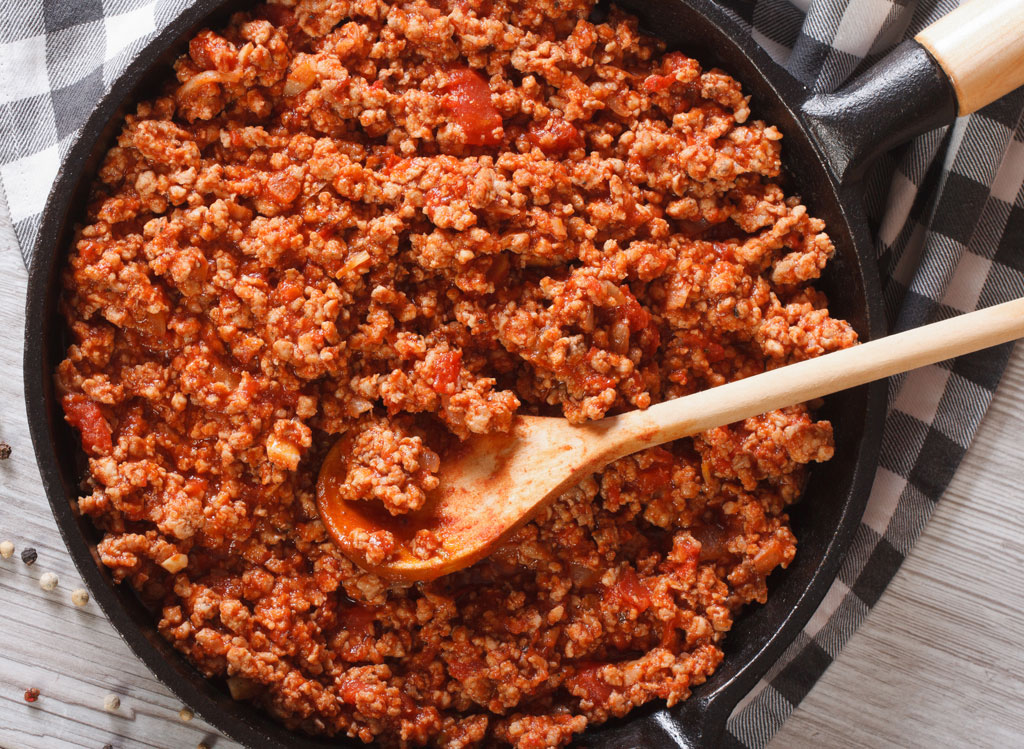
Studies show that eating the right cuts of steak can help whittle your middle. But fatty cuts can have the opposite effect. In fact, they’ve been positively associated with belly fat and larger waist circumference in lab studies. Use 80% lean beef or better to keep your metabolism stoked and your heart healthy.
RELATED: The Best & Worst Cuts of Steak—Ranked by Nutritional Benefits!
Turkey Bacon
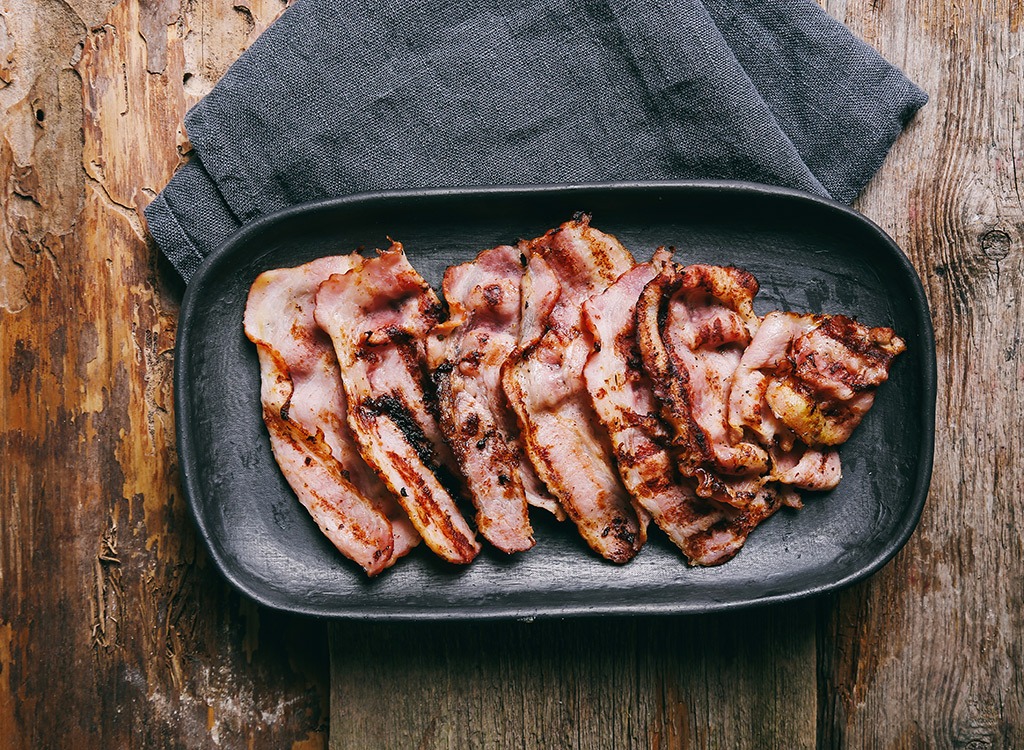
There’s no denying it: Bacon can make any soup taste ten times better. But if you think you’re making the healthy choice by opting for the turkey variety over the pig you’ve got things all wrong. Though turkey bacon has about 13 fewer calories per slice, it’s higher in sodium—not great news if you have high blood pressure. Plus, pork offers more protein and heart-healthy monounsaturated fatty acids (MUFAS) than its poultry-based counterpart. Bear in mind that no matter which option you add to your bowl of broth, serving size matters, so don’t pig out.
Sausage
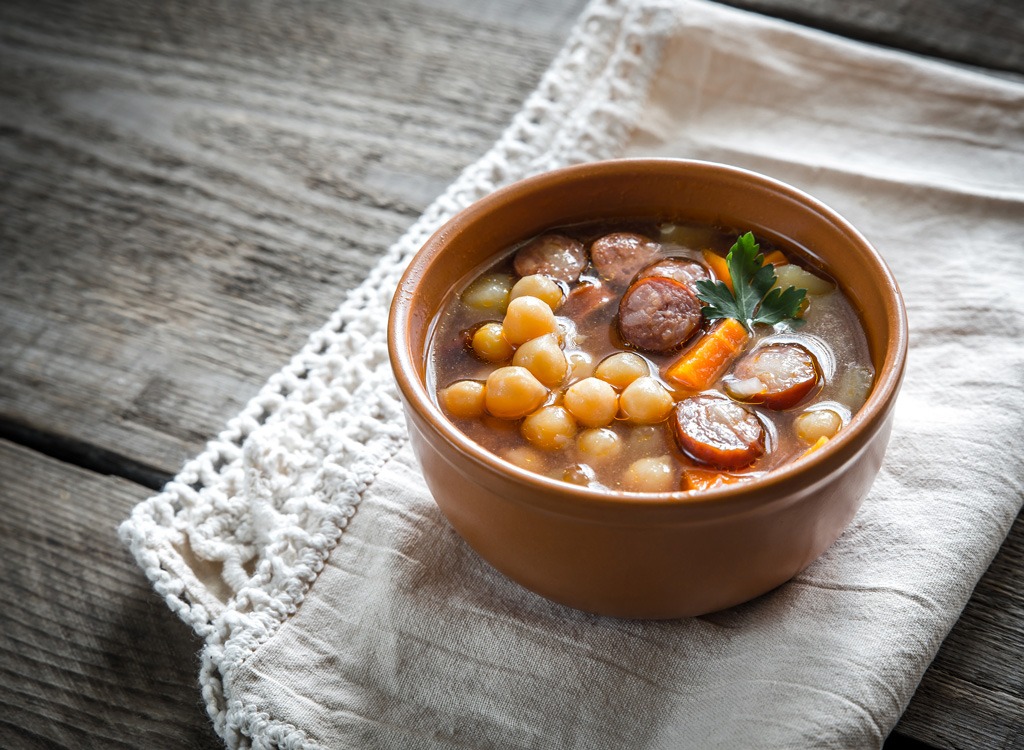
Mmm, mmm, mmm! Italian sausage soup! It’s super tasty, but unfortunately, most sausage links are the opposite of diet-friendly. The reason: The majority of their calories come from fat and to make matters worse, many links are laced with appetite-boosting MSG—not what you want if you’re trying to lose weight.
Cheese
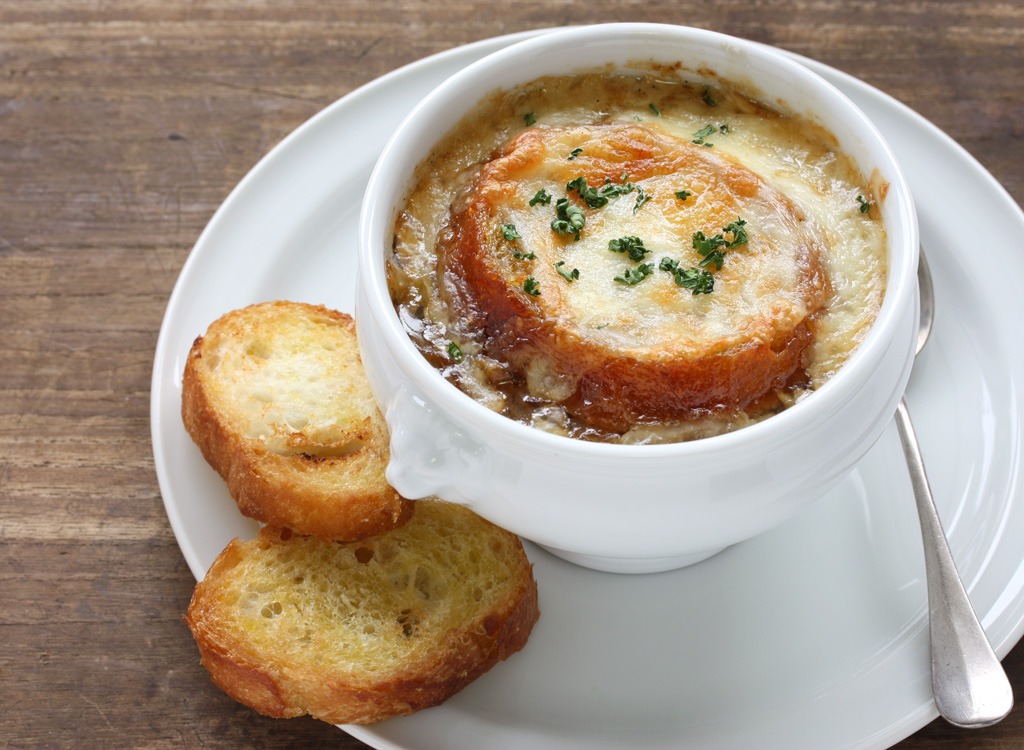
Though a sprinkle or crusting of cheese atop your bowl may not seem like a major diet disaster, the addition is laden with fat and salt, something that’s already found in excess in many soup bowls. And whatever you do, just say no to cheese-based soups (sorry cheddar and broccoli fans)! They can pack up to 350 calories and 20 grams of fat in one small bowl! Eek!
Peanut Butter
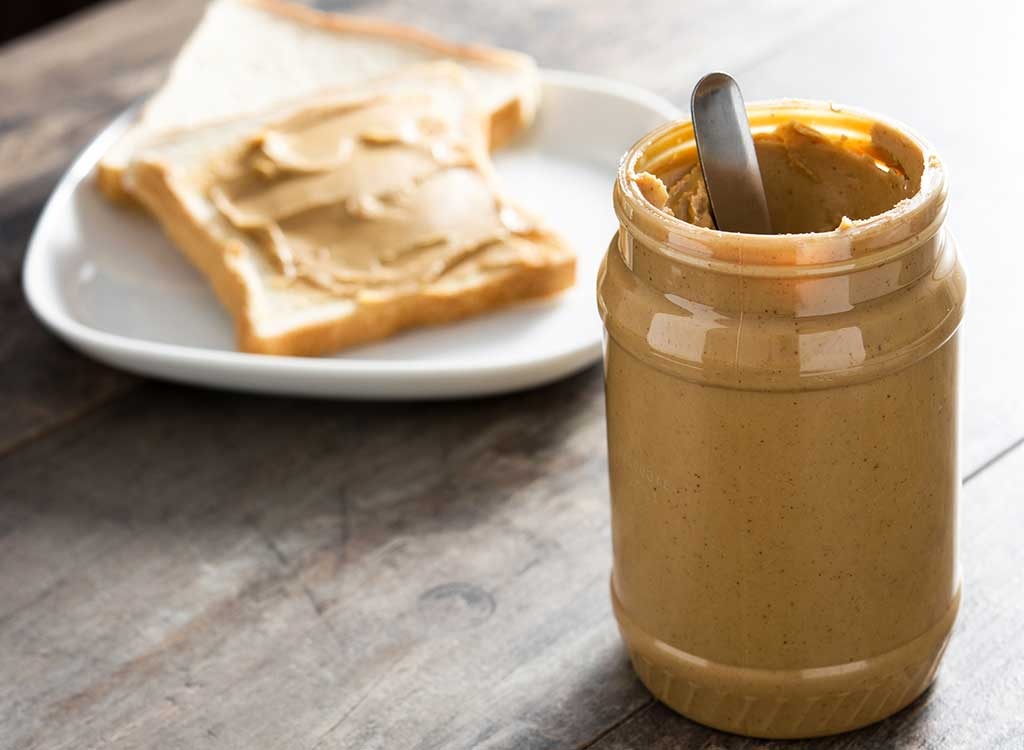
If Thai peanut soup is your go-to, make sure you’re using an all-natural nut butter. Conventional peanut butter spreads are laden with excess sugar and trans fats that can harm your ticker and widen your waistline.
Starches
Flour
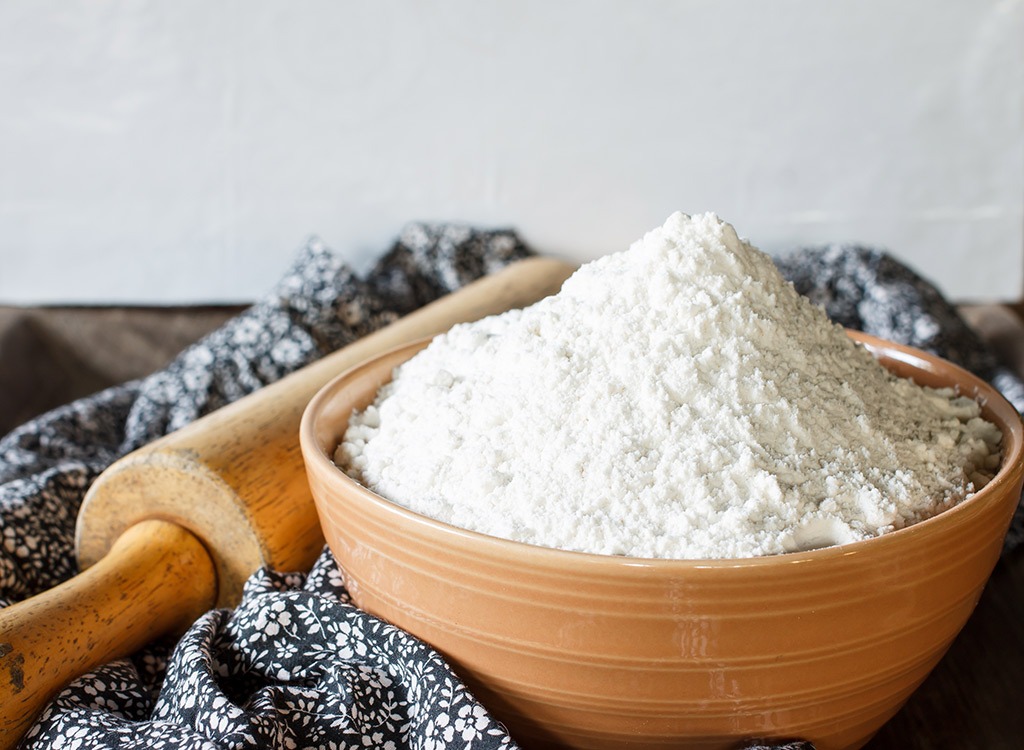
White flour is the wet blanket of the food world. It may add bulk and thickness to your bowl, but in terms of nutrition, it brings nothing to the table but calories.
Tortilla Strips
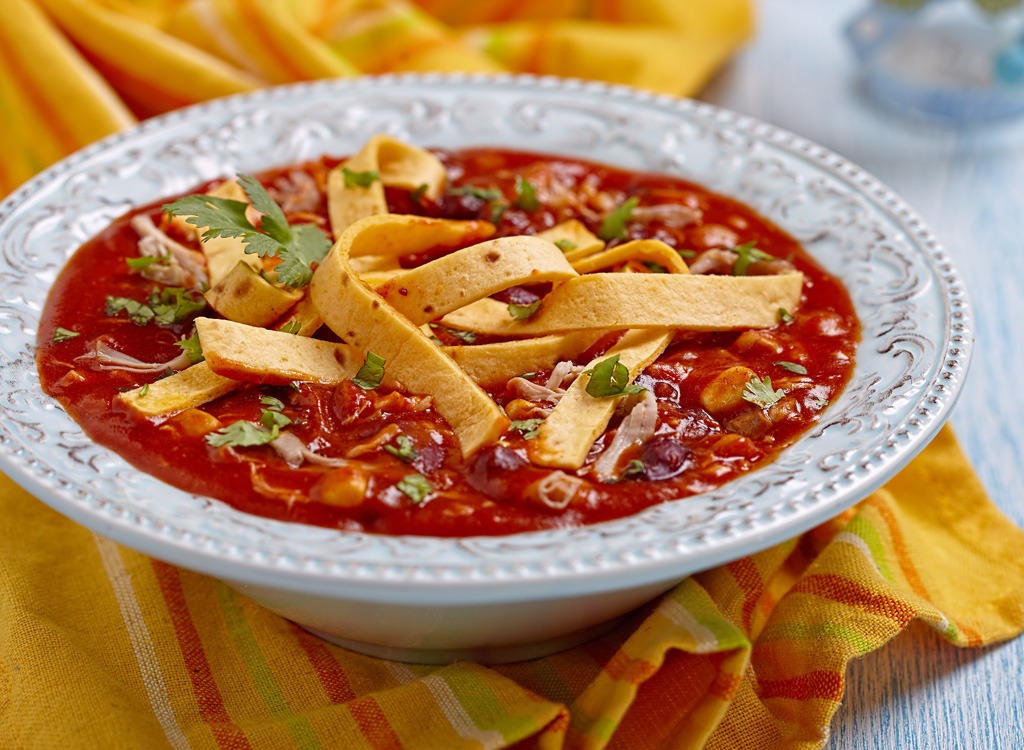
As crunchy and fun to eat as they may be, tortilla strips are just another source of empty calories and carbs. Keep them out of your bowl and pair your soup with one of these 25 Best Carbs for Weight Loss instead.
Conventional Pasta
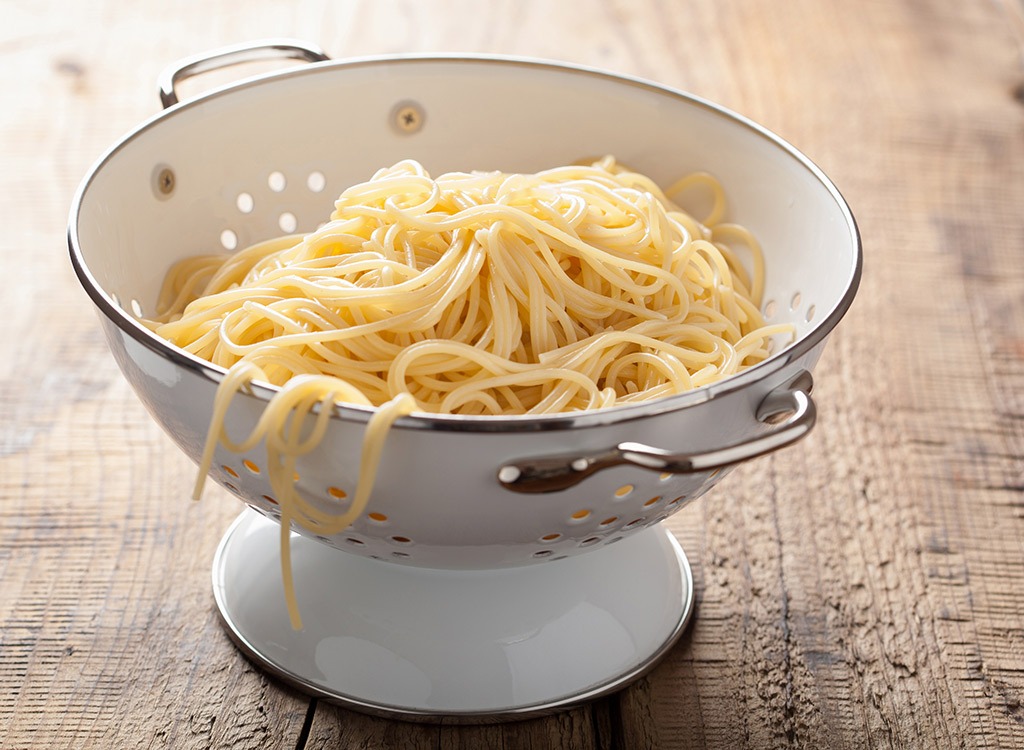
Sorry chicken noodle fans, the bulk of your bowl is likely filled with refined wheat, which is completely void of fiber and protein, two vital weight loss nutrients. Thankfully, there are some healthy alternatives that won’t give you a headache. Nutrient-stripped noodles, whole grain pasta, Banza chickpea noodles, and zucchini noodles (AKA zoodles) are healthier options packed with things like fiber, protein, and whole grains that your body can use for sustained energy. Ditch the white stuff and use one of our healthy alternatives instead—your waistline will thank you.
White Rice
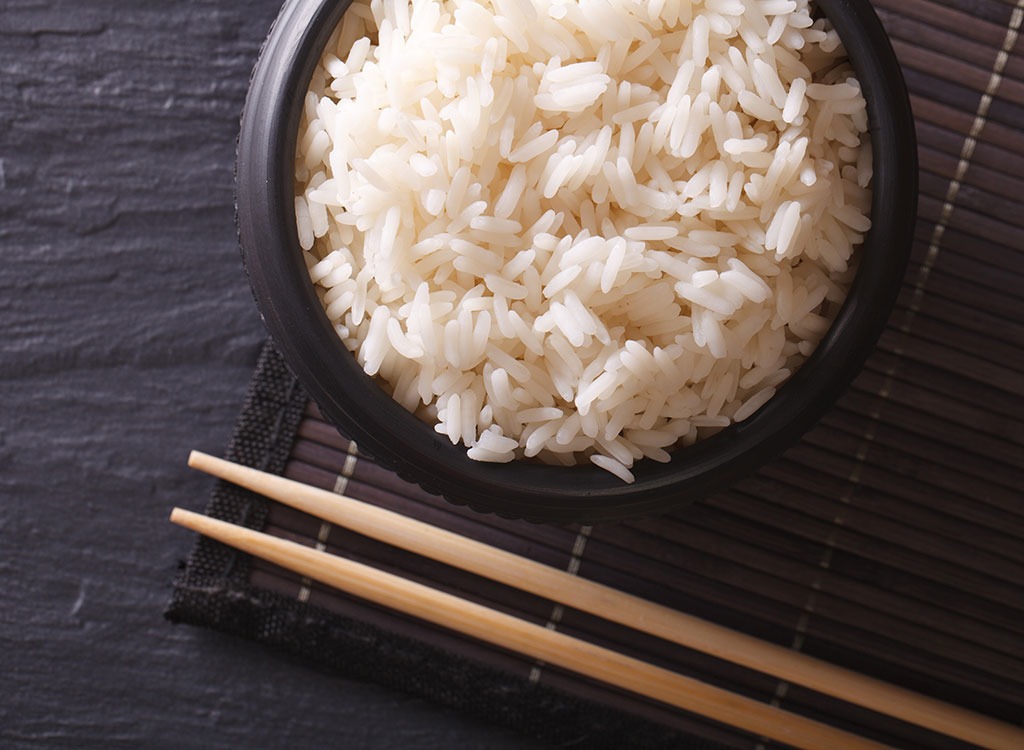
Chicken and rice soup may sound healthier than the classic chicken noodle variety but white carbs are all the same. Skip ’em all, including white rice, if your goal is to get a flat belly. Barley, quinoa, and brown rice are all better bets for your waistline and healthy and can all be easily subbed into all of your go-to recipes.
Croutons
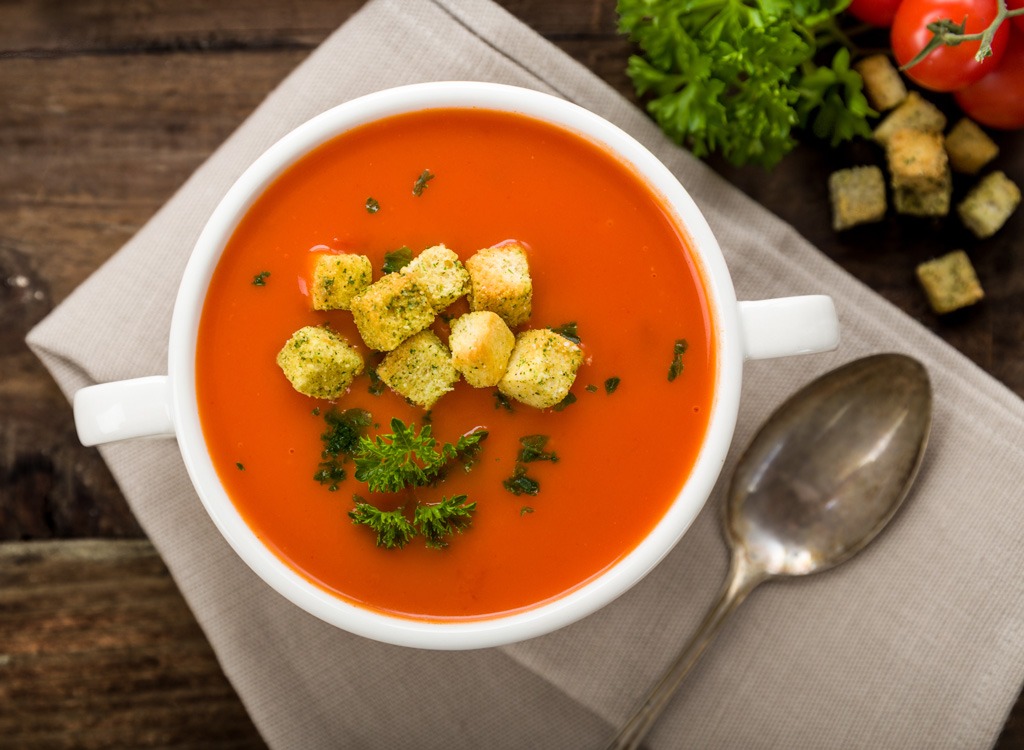
Crunchy, airy, delicious, and, more often than not, completely devoid of any fiber or whole-grain goodness, croutons are an easy way to add empty calories to your bowl of soup. Just six little cubes pack about 30 calories and 75 milligrams of sodium. And who has just six? More like 16, which would set you back some 80 calories and 200 milligrams of sodium. Our advice? Skip ’em! Soup is salty enough as it is.
Cornbread
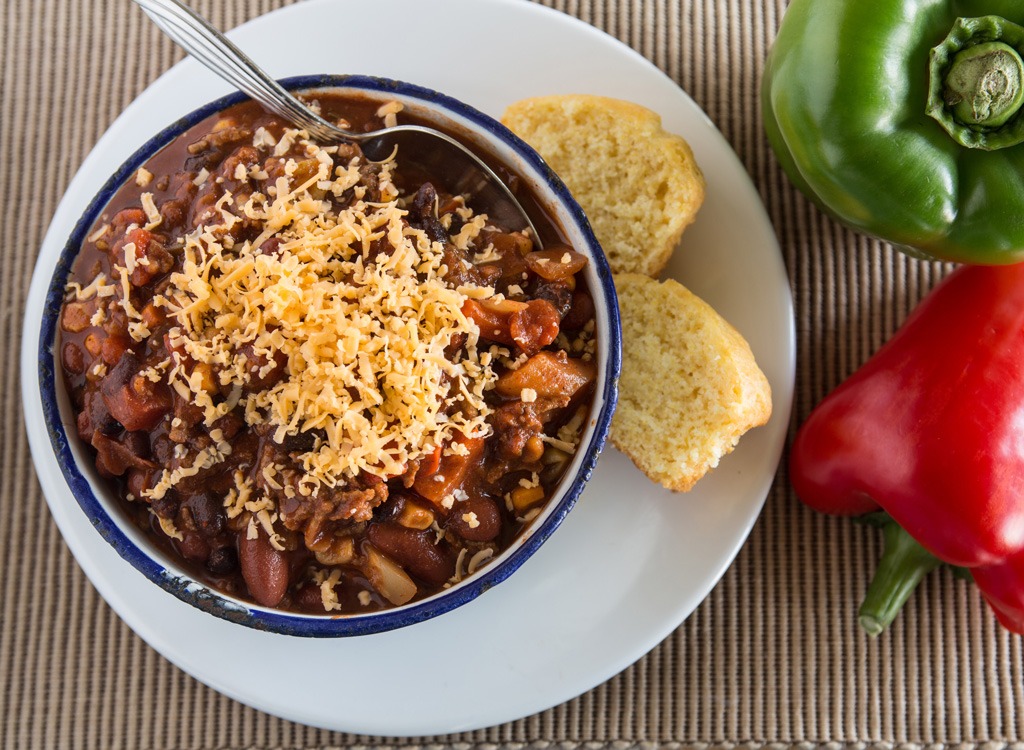
We know, we know, no bowl of chili is complete without a side of cornbread—but eating just one slice of the stuff is not without consequence. One serving carries more than a quarter day’s fat and nearly 300 calories! Pair your soup with a flat belly side salad instead and call it a day. No chili companion is worth that many calories.
Veggies
Canned Veggies
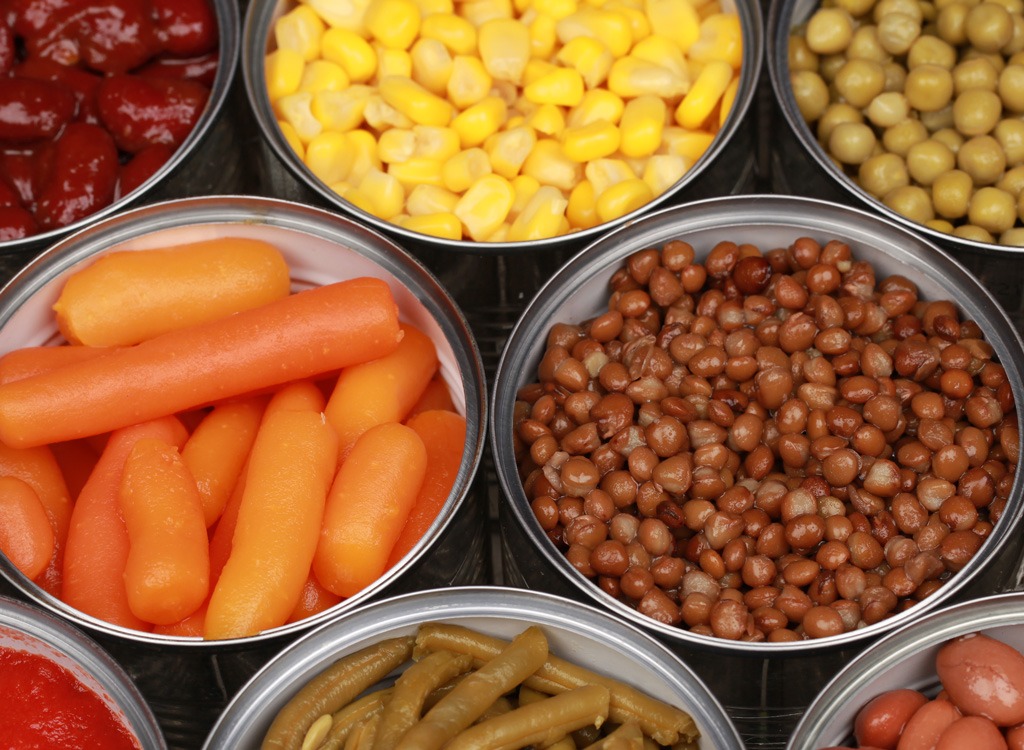
What separates a healthy green bean from a not-so-healthy one? About three aisles in the grocery store! Canned vegetables are typically loaded with excess salt and “flavor enhancers” like MSG, which, even in small doses, can cause stomach aches and indigestion. Just a half cup of canned cut green beans contains 380-390 mg of sodium—that’s more salt than you’ll find in a snack-size bag of Doritos! Switch to frozen or fresh to give your pot a healthy makeover.
Tomato Sauce
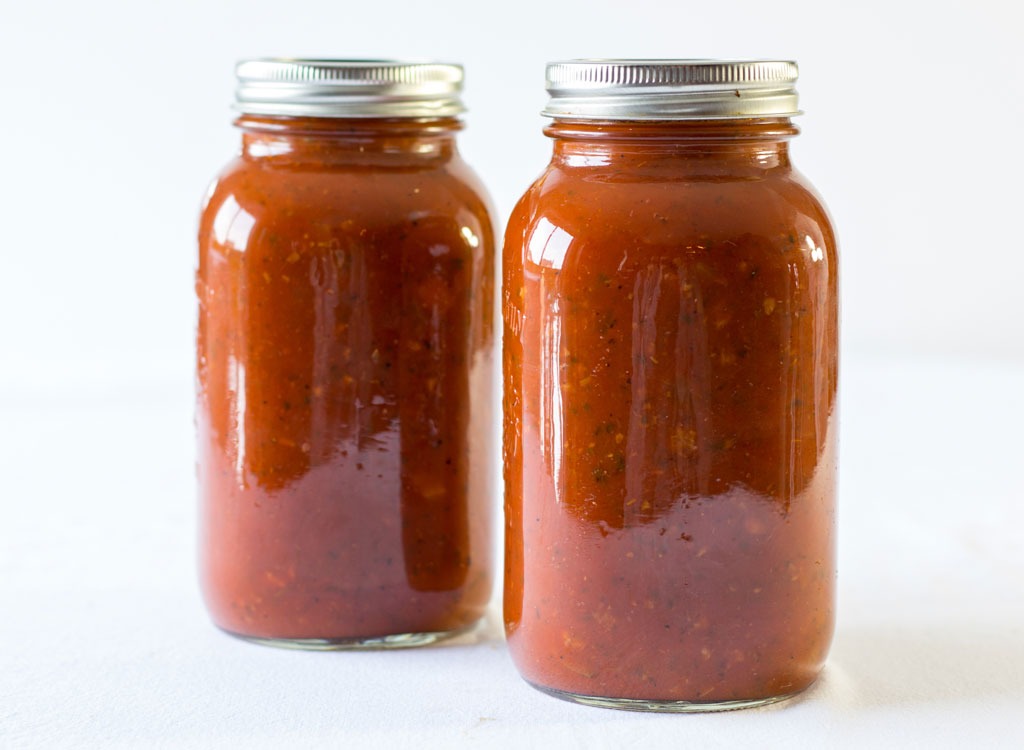
Some homemade tomato soups rely on jarred tomato sauce to get their signature texture and flavor. Sadly for your waistline, the jarred concussion is one that’s overflowing with added sugar. Look for recipes that call for fresh tomatoes or reach for a no-sugar-added sauce like Ragu’s No Sugar Added Tomato Basil. And for more healthy supermarket picks and cooking tools, check out these 40 Things Healthy Cooks Always Have in Their Kitchen.
Spices
Salt
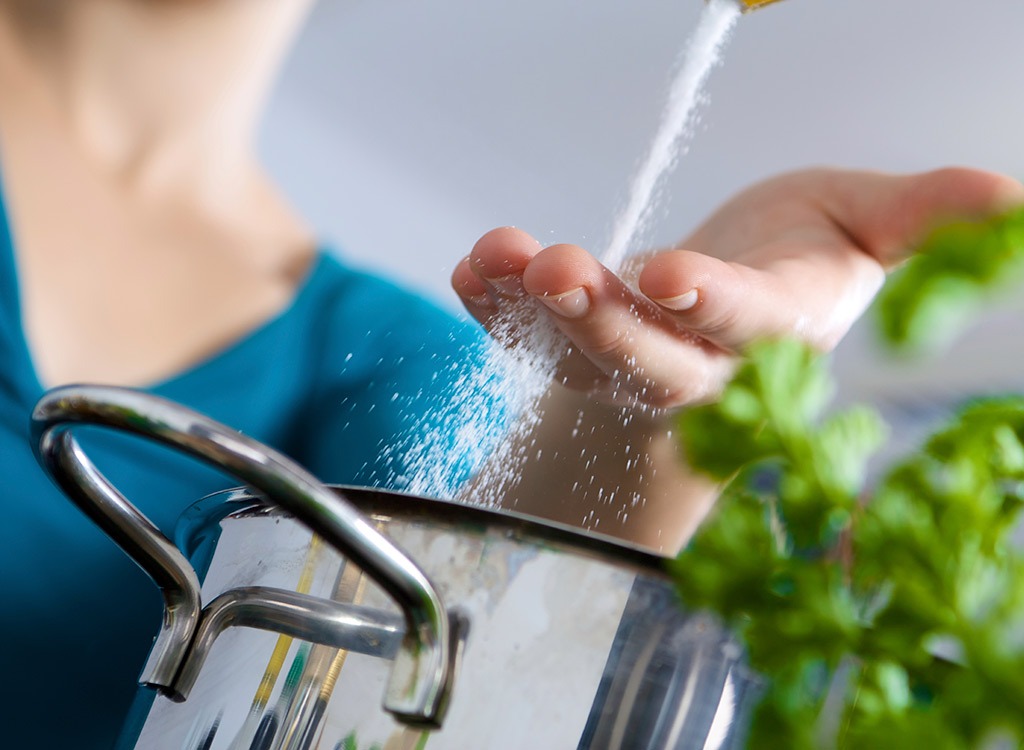
Between the broth, the meat, and the salt-coated canned veggies, you likely have more sodium in your bowl than you’d find in the Dead Sea—there’s absolutely no need to add any more of the stuff into the pot.
Sugar
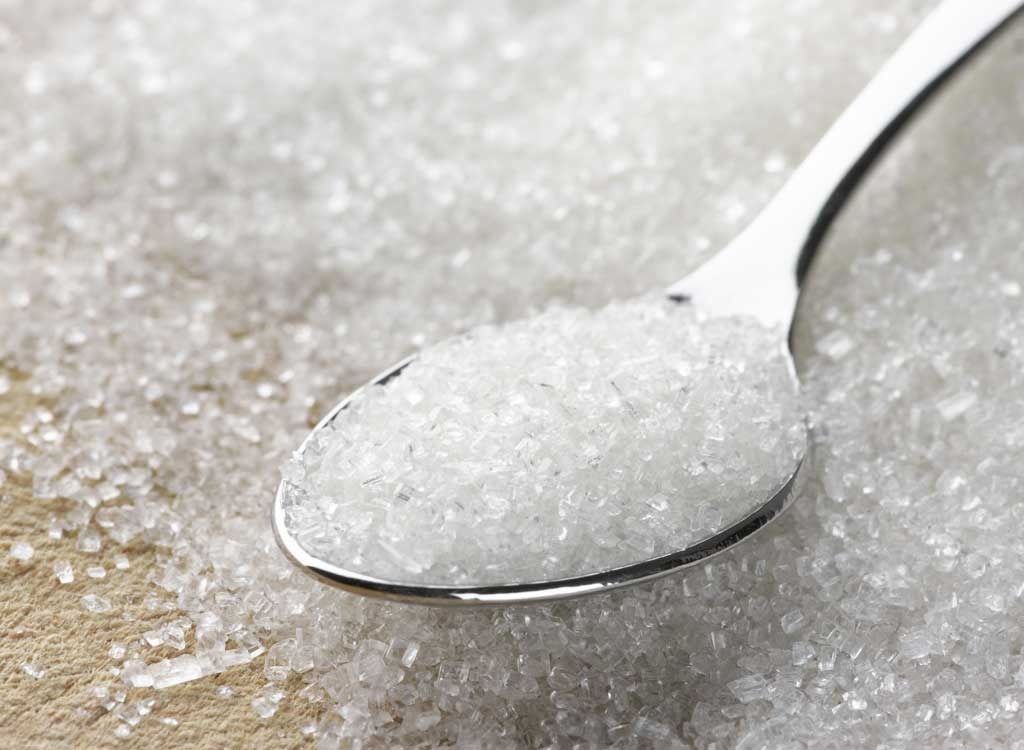
Believe it or not, it’s fairly common for French onion and tomato soup recipes to call for some form of added sugar—which, if you’re anything like your fellow citizens is the last thing your body needs. According to the CDC Americans eat a whopping 82 grams of added sugar a day—which is 37 grams above the recommended intake! Keep the extra sugar out of your soup bowl and save your daily allowance for something that actually tastes sweet, like a piece of dark chocolate or a homemade cookie.
Read more:
Healthy Secrets About Cabbage You Never Knew
